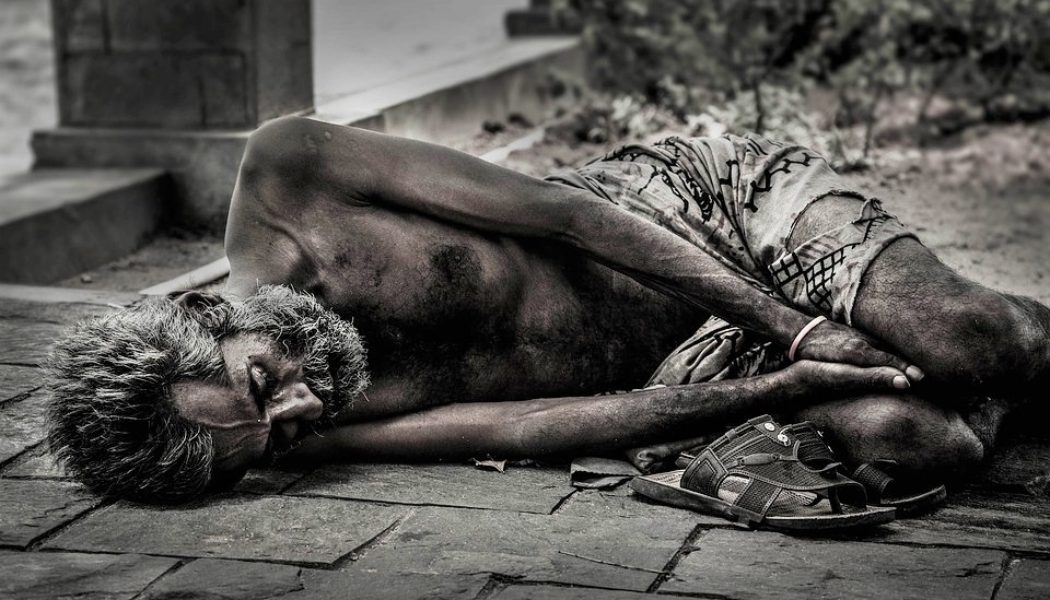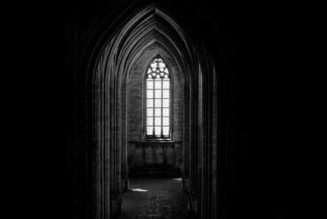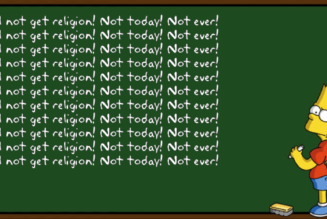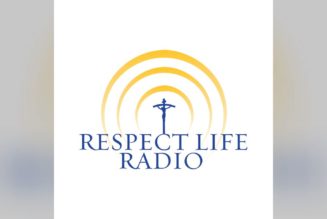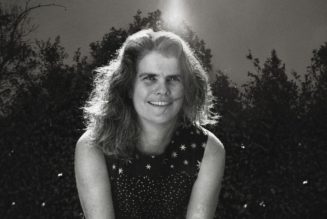
This Sunday’s Gospel about the rich man and Lazarus contains some important teachings on judgment and Hell. We live in times in which many consider the teachings on Hell to be untenable. They struggle to understand how a God described as loving, merciful, and forgiving could assign certain souls to Hell forever. Despite the fact that the Doctrine of Hell is taught extensively in Scripture as well as by Jesus Himself, it does not comport well with many modern notions and so many people think that it has to go.
The parable addresses some of the modern concerns about Hell. Prior to looking at the reading, it is important to understand why Hell has to exist. I have written on that topic extensively here. What follows is a brief summary of that lengthier article.
Hell must exist for one essential reason: respect. God has made us free and respects our freedom to choose His Kingdom or not. The Kingdom of God is not a mere abstraction. It has some very specific values, and these are realized and experienced perfectly in Heaven.
The values of the Kingdom of God include love, kindness, forgiveness, justice to the poor, generosity, humility, mercy, chastity, love of Scripture, love of the truth, worship of God, and the centrality of God.
Unfortunately, there are many people who do not want anything to do with those values, and God will not force them to. Everyone may want to go to Heaven, but Heaven is not merely what we want it to be; it is what it is, as God has set it forth. Heaven is the Kingdom of God and its values in all their fullness.
There are some (many, according to Jesus) who live in a way that consistently demonstrates their lack of interest in Heaven. They do this by showing that they are not interested in one or many of the Kingdom’s values. Hell “has to be” because God respects people’s freedom to choose to live in this way. Because such people demonstrate that they do not want Heaven, God respects their freedom to choose “other arrangements.”
In a way, this is what Jesus says in John’s Gospel, when He states that judgment is about what we prefer: And this is the judgment: the light has come into the world, and people loved the darkness rather than the light because their works were evil (John 3:19). In the end, you get what you want: light or darkness. Sadly, many prefer the darkness. The day of judgment discloses our final preference; God respects that even if it is not what He would want for us
This leads us to the Gospel, which we will look at in three stages.
I. The Ruin of the Rich Man – As the Gospel opens, we see a rich man (some call him Dives, which simply means “rich”). There was a rich man who dressed in purple garments and fine linen and dined sumptuously each day.
It is clear that he lives very well and has the ability to help the poor man, Lazarus, who is outside his gate. But he does not do so.
The rich man’s sin is not so much one of hate as of indifference. He is living in open rejection of one of the Kingdom’s most important values: love of the poor. His insensitivity is literally a “damnable sin”; it lands him in Hell. His ruin is his insensitivity to the poor.
The care of the poor may be a complicated matter, and there may be different ways of approaching it, but we can we never consider ourselves exempt if it is within our means to help. We cannot avoid judgment for greed and insensitivity. As God said in last week’s reading regarding those who are insensitive to the poor, The LORD has sworn by the pride of Jacob: Never will I forget a thing they have done (Amos 8:7). God may well “forget” many of our sins (cf Is 43:23; Heb 8:12), but apparently disregarding the needs of the poor isn’t one of them.
This rich man has repeatedly rejected the Kingdom by his greed and insensitivity. He lands in Hell because he doesn’t want Heaven, where the poor are exalted (cf Luke 1:52).
Abraham explains the great reversal to him: My child, remember that you received what was good during your lifetime while Lazarus likewise received what was bad; but now he is comforted here, whereas you are tormented.
II. The Rigidity of the Rich Man – You might expect the rich man to have a change of heart and repent, but he does not. Looking up into Heaven, he sees Lazarus next to Abraham, but rather than finally recognizing Lazarus’ dignity and seeking his forgiveness, he tells Abraham to send Lazarus to Hell with a pail of water to refresh him. The rich man still sees Lazarus as beneath him (even though he has to look up to see him); he sees Lazarus as an errand boy.
Notice that the rich man does not ask to be admitted to Heaven! Although he is unhappy with where he is, he still does not seem to desire Heaven and the Kingdom of God with all its values. He has not really changed. He regrets his current torment but does not see Heaven as a solution. Neither does he want to appreciate Lazarus’ exalted state. The rich man wants to draw Lazarus back to the lower place he once occupied.
This helps to explain why Hell is eternal. It would seem that there is a mystery of the human person that we must come to accept: we reach a point in life when our character is forever fixed, when we can no longer change. When exactly this occurs is not clear; perhaps it is at the moment of death itself.
The Fathers of the Church often thought of the human person as clay on a potter’s wheel. As long as it is on the wheel and moist it can be molded, but when the clay is taken off the wheel and placed in the fiery kiln (fire is judgment day (cf 1 Cor 3:15)), its shape is forever fixed.
The rich man manifests this fixed quality. He is unhappy with his torments, even wanting to warn his brothers, but apparently he does not intend to change or somehow he is unable to change.
This is the basis for the teaching that Hell is eternal: once having encountered our fiery judgment, we will no longer be able to change. Our decision against the Kingdom of God and its values (a decision that God, in sadness, respects) will be forever fixed.
III. The Reproof for the Rest of Us – The rich man, though he cannot or will not change, would like to warn his brothers. He thinks that perhaps if Lazarus would rise from the dead and warn them, they would repent!
We are the rich man’s brethren, and we are hereby warned. The rich man wanted exotic measures, but Abraham said, “They have Moses and the prophets. Let them listen to them.” “Oh no, father Abraham, but if someone from the dead goes to them, they will repent.” Then Abraham said, “If they will not listen to Moses and the prophets, neither will they be persuaded if someone should rise from the dead.”
This reply is dripping with irony, given Jesus’ resurrection from the dead.
We should not need miraculous signs to bring us conversion. The phrase “they have Moses and the prophets” is a Jewish way of saying that they have Scripture.
The Scriptures are clear to lay out the way before us. They give us the road map to Heaven and we only need to follow it. We ought not to need an angel or a ghost or some extraordinary sign. The Scriptures and the teachings of the Church should be sufficient.
Their message is clear enough: daily prayer, daily Scripture, weekly Eucharist, frequent confession, and repentance all lead to a change of heart wherein we begin to love the Kingdom of God and its values. We become more merciful, kind, generous, loving toward the poor and needy, patient, chaste, devout, and self-controlled.
Hell exists! It has to exist because we have a free choice to make, and God will respect that choice even if he does not prefer it.
Each of us is free to choose the Kingdom of God—or not. This Gospel makes it clear that our ongoing choices lead to a final, permanent choice, at which time our decision will be forever fixed.
The modern world needs to sober up. There is a Hell and its existence is both reasonable and in conformity with a God who both loves us and respects our freedom.
If you have any non-biblical notions in this regard, consider yourself reproved. Popular or not, Hell is taught, as is the sobering notion that many prefer its darkness to the light of God’s Kingdom.
The care of the poor is very important to God. Look through your closet this week and give away what you can. Look at your financial situation and see if it is pleasing to God. The rich man was not cruel, just insensitive and unaware. How will you and I respond to a Gospel like this?
[embedded content]
Join Our Telegram Group : Salvation & Prosperity
